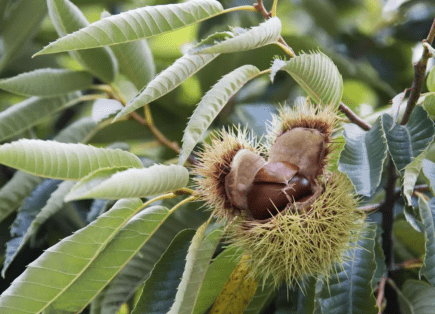
On June 18th, 2019 Moroccan scientist Ihssane Toujgani was one of seven winners of the Man and the Biosphere (MAB) program. Toujgani was recognized for her work on the genetics of chestnut trees. Chestnuts, in addition to being a rich source of vitamins and minerals, have been linked with managing diabetes, improving digestion, and boosting the immune system.
The Castanea Sativa Mill species thrives in the Intercontinental Biosphere Reserve of the Mediterranean region. The Intercontinental Biosphere uniquely combines Morocco’s Tingitane Peninsula (Tangier Peninsula) with the Andalucian Iberian Peninsula.
Biosphere reserves are UNESCO designated areas with a focus on protecting special plants and animals. Morocco has a total of four biosphere reserves.
Biosphere reserves are UNESCO designated areas with a focus on protecting special plants and animals. Morocco has a total of four biosphere reserves. These reserves and their locations are Atlas Cedar Biosphere Reserve in the central Atlas Mountains, the Iriqui National Park between the Draa River and the Southern foothills of the Anti-Atlas, and the Souss-Massa National Park on the Atlantic coast of Morocco.
The MAB award was created by The United Nations Educational, Scientific and Cultural Organization (UNESCO). Toujgani will be awarded up to $5,000 USD s to continue her research. Since 1989, MAB has provided scientists with grants to support their research on ecosystems, natural resources, and biodiversity. MAB believes that ecological and sustainability issues are best addressed by well-trained and committed young people.
